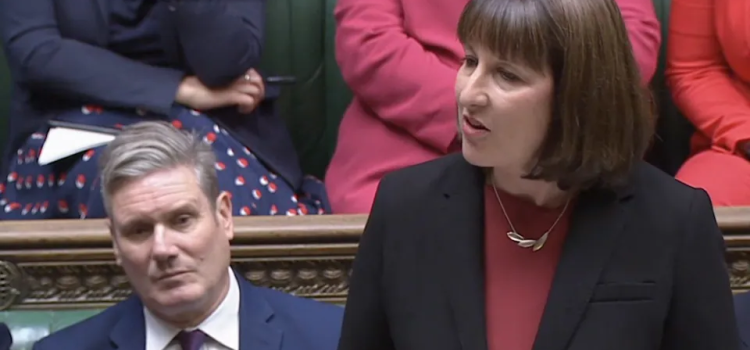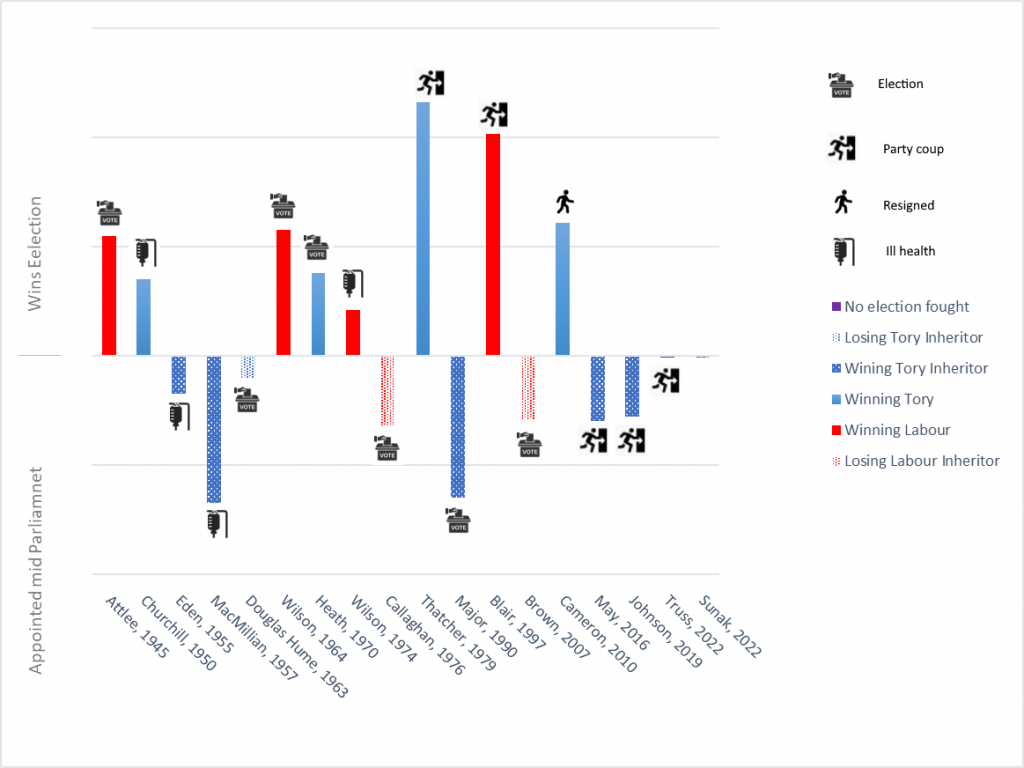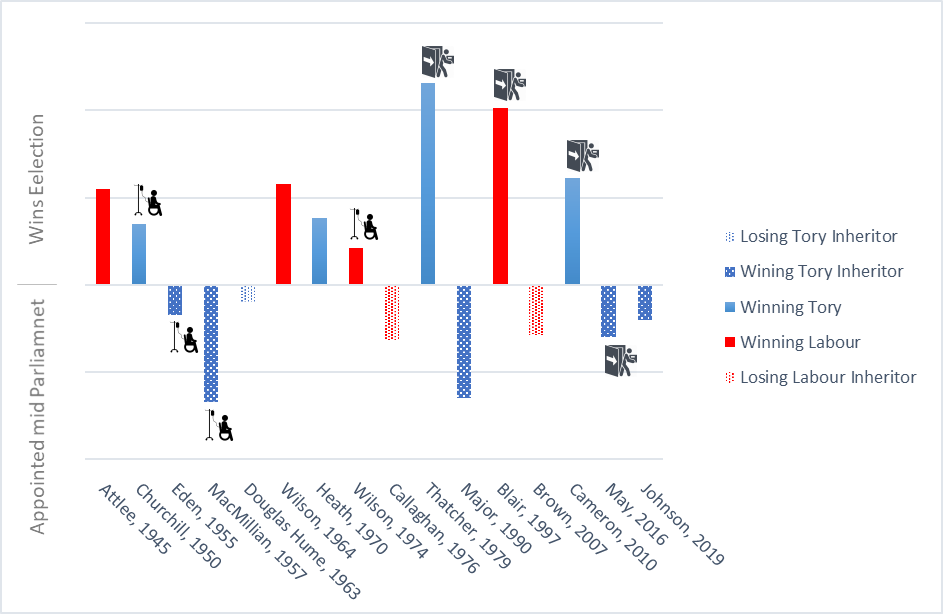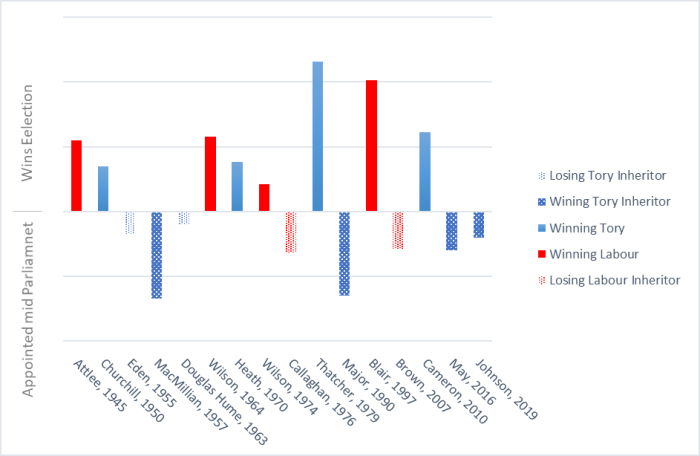Fixing the Centre
The Institute for Government (IfG) produced a report recently in which they analyse the power, influence, and success of the machinery supporting prime ministers. They came up with a number of recommendations. Amongst constitutional law geeks there has been some excitement although I wonder whether this is warranted or not. One campaigning ally of mine described it as the road to Stalinism, but I think not. The Times takes a more measured approach, although the Times’ language suggests that it was fed by a Labour source. The IfG report was produced by a commission consisting of the great and the good, and a number of ex-Civil Servants.
Possibly the most concise definition of the problem made by the IfG is,
The prime minister has over time become ever more of an executive leader of the government, but the support they are given has not kept pace with their responsibilities. The centre of government fails to set and maintain an overall strategy for the government to follow. The resulting vacuum is filled by the powerful Treasury.
I question the idea that Prime Ministers want to be strategic in terms of delivery; much of their exercise of control would seem to be aimed at managing/delaying the succession plans of others.
“The opposition occupies the benches in front of you, but the enemy sits behind you.”
Winston Churchill
The IfG then argue that one of the reasons for such a power vacuum is an inadequate Office of the Prime Minister. They observe, correctly in my view, the cabinet has ceased to be an effective decision-making body. Some of this is by design of numerous prime ministers, other factors include the mushroom therapy operated by the Treasury, and the lack of time spent in cabinet meetings. The last factor is not compensated by the use of cabinet committees.
This is a long standing problem, possibly dating back to the sixties when Harold Wilson instantiated the No 10 Policy Unit which was designed to think long term and led by Bernard Donoughue. We should if considering delivery management and its political accountability note that Wilson also demerged economics from the Treasury creating a Department of Economic affairs. The Wikipedia page, details how Tony Blair set priorities with sub-units specified for strategy and delivery. This all shows that is not a new problem and it’s rarely been solved well.
The IfG recommend taking the management of the civil service out of No 10, appointing a cabinet member as responsible and carving the Head of the Civil Service role out from the Cabinet Secretary’s. Also, the department for the civil service should be demerged from the Cabinet Office; there is a talent management argument in favour of this. The IfG argues that the Civil Service has the wrong skills nexus for delivery. (This is a very old criticism, and I for one, believe the impermanence and short-termism of ministers is also, possibly a more important, part of the problem.)
While dissing the Cabinet, they suggest that their proposal of an inner cabinet is in fact already common practice; I would suggest that they underestimate the reliance that Prime Minsters have made of special advisors as opposed to other Ministers: Johnson/Cummings, Blair/Powell, and Thatcher/Ingham.
They argue for a new Civil Service Board to hold the Service’s leadership accountable for reform priorities. (This is the shortest part of the summary and I feel the least well argued. While the language is much more moderate than Thatcher and her team would have used, these are criticisms that they made, that the civil service were not committed to programme and manifesto. These complaints were repeated by Johnson and Gove. The Thatcherite answer was non-departmental bodies and replacing those permanent secretaries they considered butskellites and insufficiently committed to the agenda. I note that Permanent Secretaries, the financial accounting officers, are now on 5-year fixed term contracts. ) One reform I’d like to see is the reduction on politicians influence in the appointment of .and if Braverman’s custody of the Home Office is anything to go by, the management of their Permanent Secretaries.)
The IfG also propose, “to ensure the Priorities for Government are translated into a coherent strategy, collective government priorities will be fully reflected in a new, shared, strategy, budget and performance management process at the centre of government. This will be managed by the secretariat in the new DPMC”. Are they breaking up the Treasury? They say not.
In summary, they propose,
- A five year plan (😉)
- An inner cabinet
- A first secretary of state responsible for delivery and the civil service
- A separate Department for the Civil Service
- a new statute for the civil service and a Civil Service Board
- The roles of cabinet secretary (accountable to the prime minister) and head of the civil service (accountable to the first secretary) should be filled by separate individuals.
- The government’s priorities should be fully reflected in a new, shared strategy, budget and performance management process owned collectively at the centre of government.
Hardly a route to the gulags.
There is a problem, it’s rarely been solved and these reforms are not exactly revolutionary. Prime Ministers have many tools to exclude the Cabinet, they don’t need more permission.
An unanswered question
I’ll finish with a slight diversion, three of their proposed reforms relate to management of priorities and talent in the Civil Service. They do this without mentioning pay, probably because they know that it would go down like a cup of sick at a banquet within the Labour Party. Civil servants don’t just work in Whitehall and the average pay for crown employees is not very high as the IFG observe. The national minimum wage is about £20,150 and it would seem that a number of civil servants earn less than that. Despite the huge outsourcing initiatives that have occurred since 79, much civil service work is done by junior people and pay restraint is an issue in recruiting and retaining skills and talent at all levels, especially as the report notes where there are shortages in project management, procurement, and information technology. …





